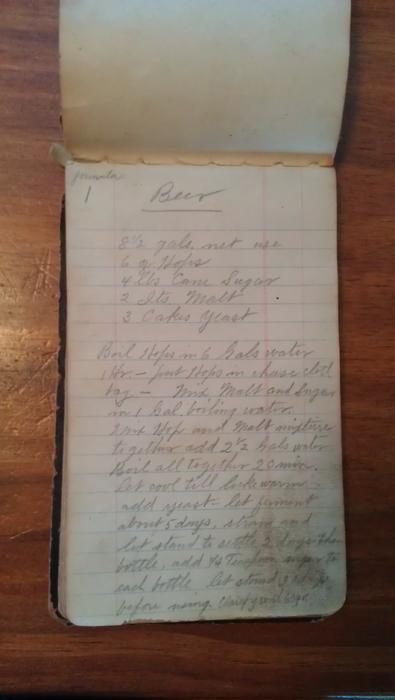The SWMBO mother brought this over to our house in hopes that I could maybe re create one of these recipes. It was her grandfathers notebook dating before prohibition and after which makes it all the more interesting. Looks like he was somewhat serious about it looking through all these test batches.









